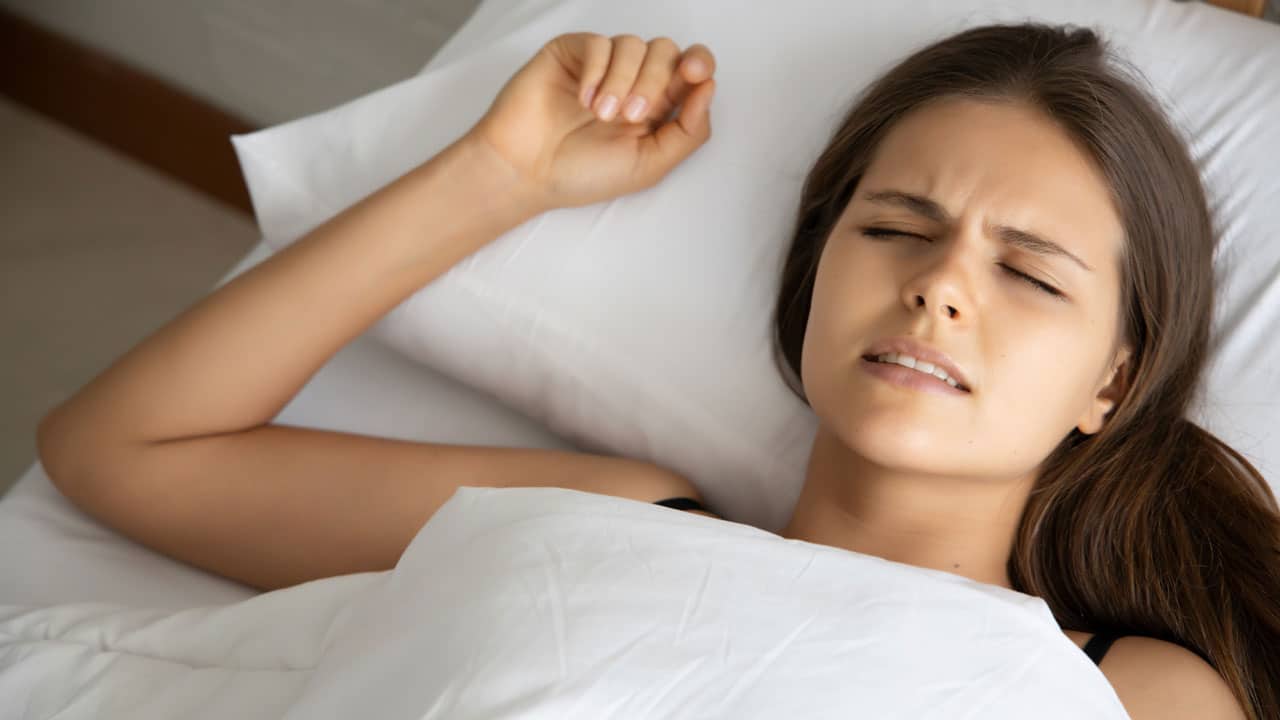
Bruxism (also called tooth grinding) is a common condition that affects around 50% of children and approximately 8% of adults in the United States.
While the exact cause of teeth grinding is unknown, several ways exist to treat symptoms. The most common and effective treatment for nocturnal teeth grinding is the regular use of a night guard.
What is Bruxism?
There are two main types of bruxism: teeth grinding that occurs during waking hours, referred to as “awake bruxism,” and teeth grinding that happens while the patient is asleep, referred to as “sleep bruxism.” Of the two, sleep bruxism is far more common.
The cause of bruxism is not yet known; however, some factors may contribute to the development of the condition, including stress, stimulant use, and obstructive sleep apnea.
Bruxism may present with a variety of symptoms, including:
- Teeth grinding/clenching
- Tooth decay, including flattened molars or chipped teeth
- Increased sensitivity or tooth pain
- Loss of enamel
- Tight or sore jaw upon waking
- Locked jaw
- Jaw, neck, and face pain
- Earache
- Tension headaches
- Abrasions inside cheek
- Poor quality sleep and daytime fatigue
If left untreated, bruxism can lead to a variety of complications. The primary complication is damage to teeth, though sleep deprivation, tooth loss, and infection are possible.
How Does a Night Guard Work?
Night guards are a barrier between the upper and lower teeth. Night guards are typically made from clear acrylic plastic, designed to absorb the force of the unconscious teeth grinding and prevent damage to the teeth. The guard also provides cushioning to reduce tension in the jaw.
Three primary types of night guard can be used to treat bruxism. The most common type is a soft guard used for shock absorption. Hard night guards, made of acrylic, are used for more severe cases, while dual laminate night guards, soft on the inside but hard on the outside, are designed for moderate cases.
Getting a Night Guard at Smile On Chicago
The first step in treating bruxism is to get fitted for a custom-fit mouth guard. Technicians at Smile On Chicago will create an impression of your teeth using an impression tray and alginate, then mold a mouth guard over that impression using a special, dental-grade material.
The mouth guard will fit your mouth perfectly for optimal comfort. Your dentist will provide instructions on how to wear and care for your night guard to prolong its lifespan.
Protect Your Oral Health With Smile On Chicago Dental Salon & Sleep Apnea Center
You may suffer from bruxism if you frequently wake up with headaches or jaw tension. To prevent long-term damage to your oral health, it is crucial to treat bruxism early. Find out how you can protect your teeth and get better sleep today by getting fitted for a custom mouth guard at Smile On Dental Salon & Sleep Apnea Center.Call our offices in Deerfield: (224) 282-8939 or Lakeview: (773) 525-5545 to schedule an appointment today.
